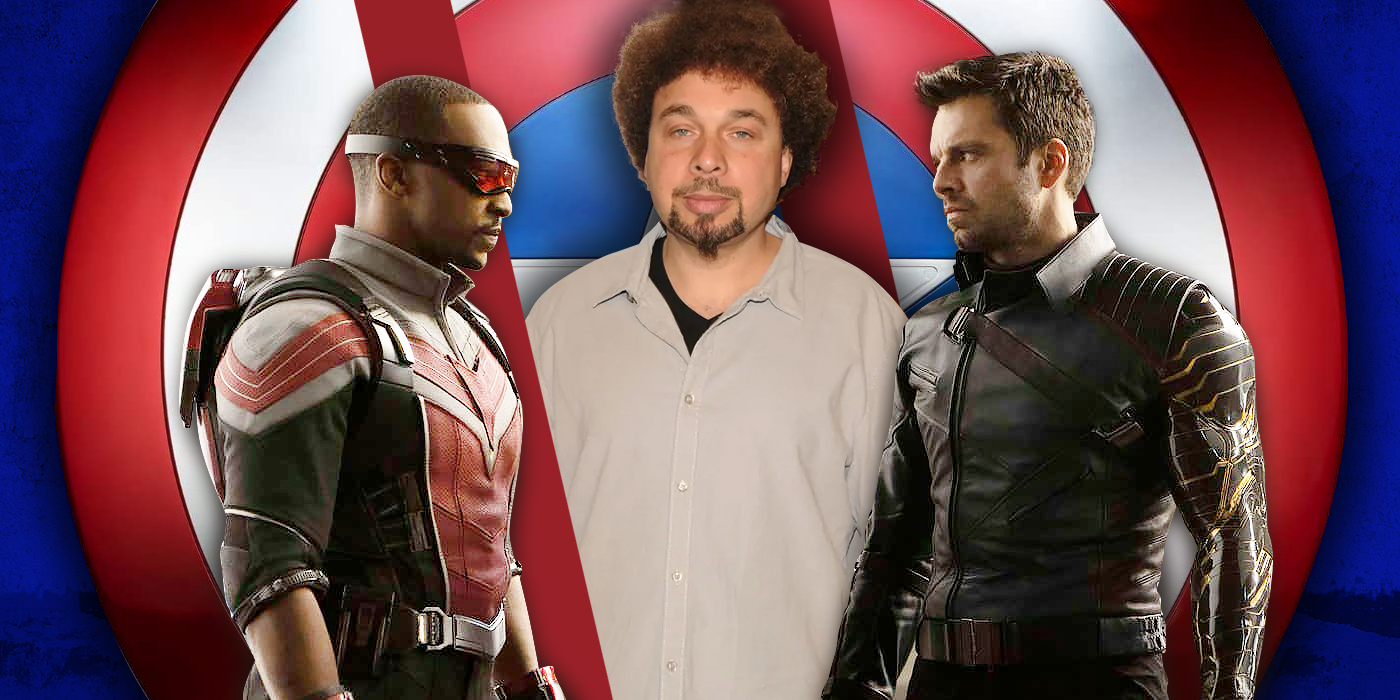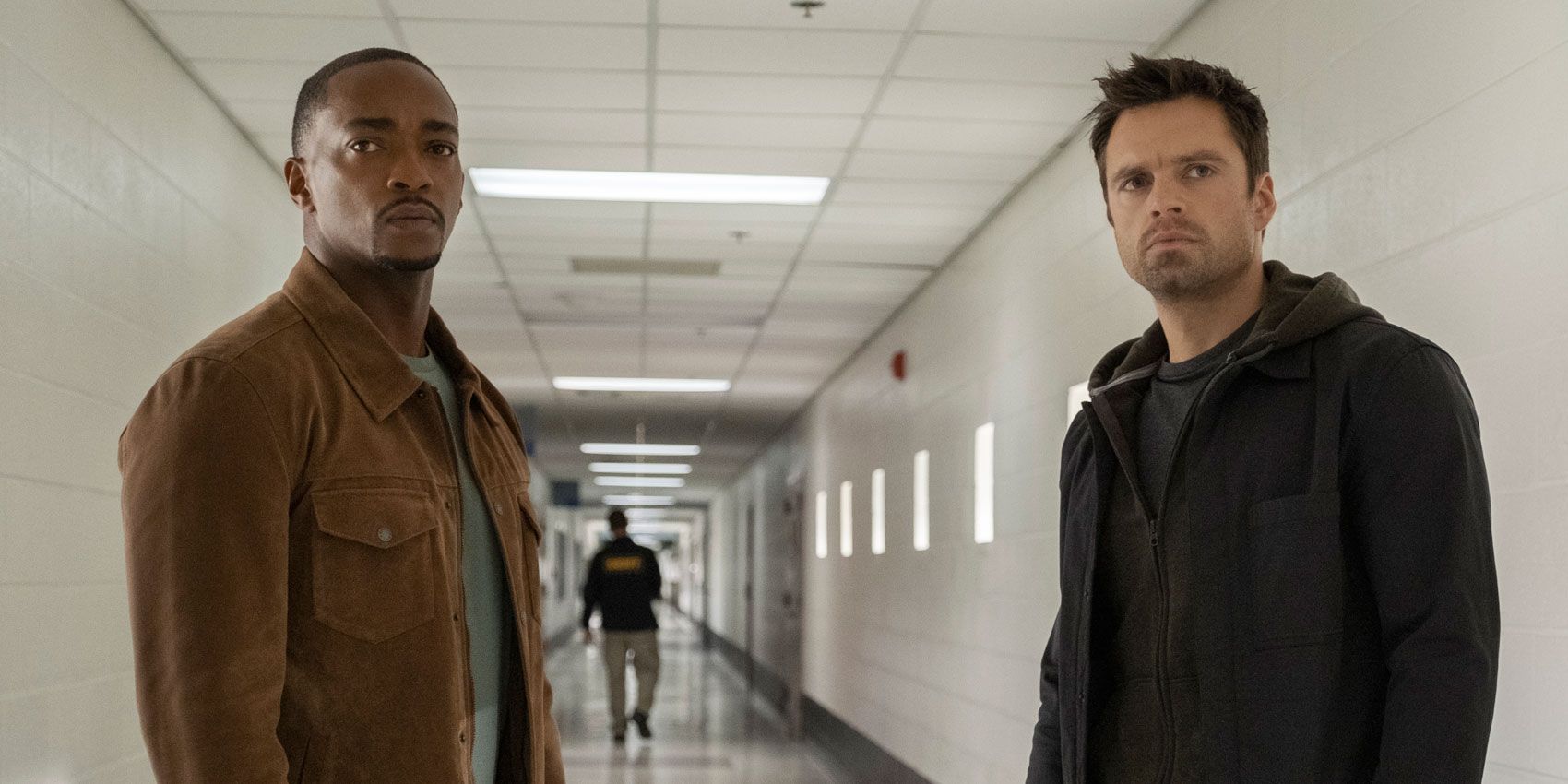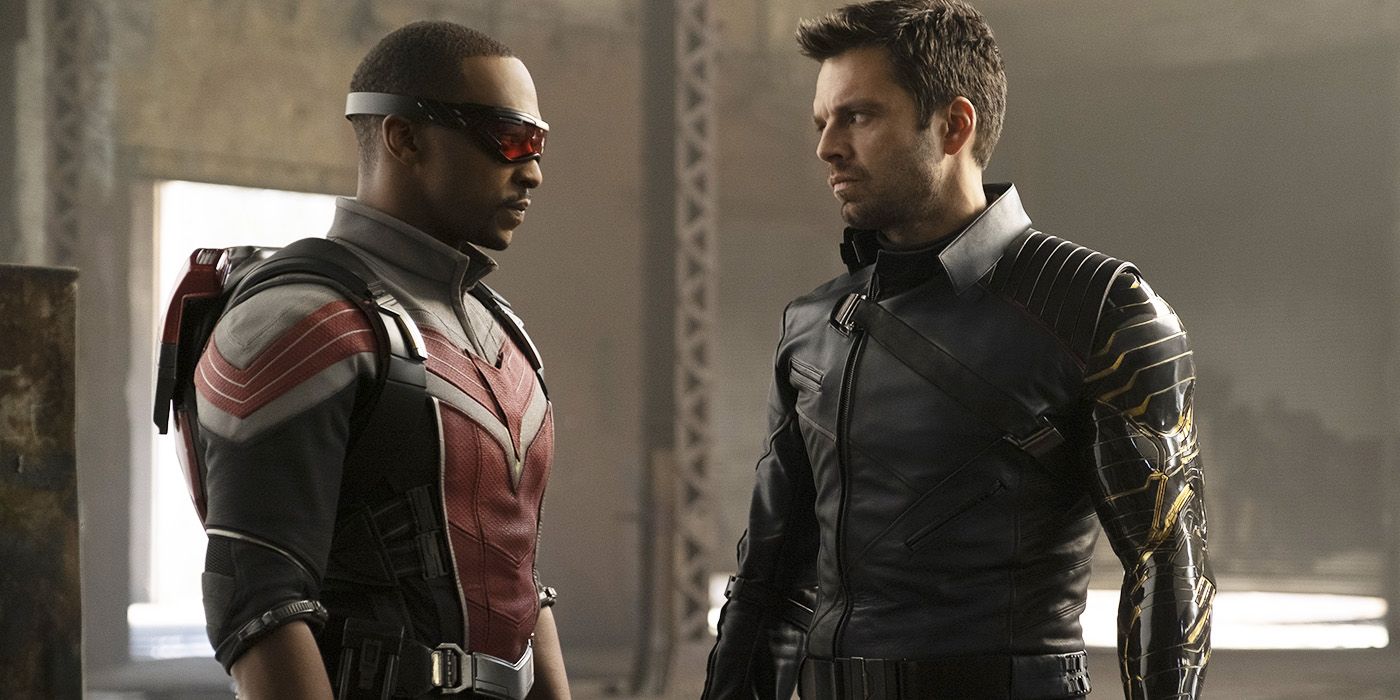The second Disney+ TV show set in the Marvel Cinematic Universe couldn't be more different from the first, but The Falcon and the Winter Soldier quickly establishes its unique spin on this world of superheroes. Key to that is head writer Malcolm Spellman, who drove the crafting of what happens as Sam Wilson (Anthony Mackie) and Bucky Barnes (Sebastian Stan) deal with not only their own abrupt return to existence, following the Blip, but a series of new threats that will require them to work together.
In a 1-on-1 interview with Collider, Spellman (whose previous credits include Empire and Truth Be Told) wasn't able to answer some of our biggest questions about the show — like, for example, whether there might ever be a second season. But he did address Falcon's placement in the MCU timeline, why the show emphasizes the personal stories of Sam and Bucky in the midst of the action, and finding a way to create a "hybrid" form of storytelling between the feature world and television.
So I wanted to start off by asking about where the show set in the MCU timeline. Was it part of your original pitch to have it be about six months after Endgame, and what was important to you about that?
MALCOLM SPELLMAN: I can't even remember if that was part of the original pitch, because this story has gone through so many iterations, but it feels like it was there from very early on. Part of it was just about creating an energy that felt modern and timely. When we started this thing, the blip felt like something that could be harnessed in a way that all the fans would dig it and it would make this series feel relevant. Part of the mission statement for this series was that we create heroes of the moment who can lead us into the future. And to do that, they have to be dealing with issues that regular people would understand. And I think anyone who's been living through this pandemic can understand how the people in the MCU feel about a global problem where half the population has just reappeared.
Yeah, the world dealing with the aftermath of a big climactic event feels very relatable right now.
SPELLMAN: I mean, think about it. They're going through something very similar and the thing about a global problem is it can unite you or divide you, you know what I'm saying? We see that push-pull happening in the series. It defines every episode of the series.
And it was also interesting because when you have a big global event like that, but it's easy to lose sight of little problems. And I think that also feels like a big part of the show.
SPELLMAN: Yeah, absolutely. Both these characters have been assigned a personal story that is a whole storyline that is separate from fighting villains and saving the world. And that is part of, I think, modernizing what a superhero is today, is to be able to see a superhero who deals with a bank loan or therapy, you know what I'm saying? Not just in one scene, but in the actual story.
I feel like there are people who have over the years asked questions like how do they pay their rent? So it's fun to actually see the show dig into that.
SPELLMAN: Yeah, It was so weird. When we wrote that scene, it triggered a huge conversation in the halls of Marvel, and everybody had opinions. So many people chimed in. And the people who we've been doing interviews with, everyone is sort of responding the same way. It's definitely satisfying a core thing for Marvel fans.
Can you talk a little bit about bringing together your writer's room and what the makeup of it was?
SPELLMAN: We were super satisfied with it, because in a pinch, it's hard to find writers. Luckily my wife and I — she's also a head writer — had put a lot of effort into nurturing relationships with diverse writers from a bunch of different backgrounds. We were determined to have a room that had a lot of Black folk in it. We had LGBTQ [people] represented. It was a small, small room. It was only six episodes, and I think we had four writers. You know what I'm saying? But the writer's assistant and the writer's PA were also black. So I think we did a pretty good job of keeping it diverse, considering.
In terms of coming at this project — if you look at all the scenes we had previously with Sam and Bucky together in the MCU, it's not a lot of screen time. It's like three minutes max of them actually talking. Was it exciting to come into this, knowing that you would get to expand upon it?
SPELLMAN: It was exciting. Number one, because we knew the chemistry the two actors had. So we knew we had a special thing that we could lean into, and just create an avenue for them to do something that's very, very rare as actors. Number two, Bucky's backstory and issues were so rich, and Sam being a black man dealing with this symbol, we knew there was going to be plenty to draw from.
This is a very timely series and it's not trying to get on a pulpit in any way. At the same time, being born from the spirit of buddy two-handers, like Lethal Weapon or 48 Hours, those films are able to grab real issues and still deliver them in a way that's fun. Hopefully, this series is doing the same thing.
Do you feel like you hit those issues at the level you wanted to hit? Do you feel like you could have gone further?
SPELLMAN: I think it's going to be very satisfying. Here's what we did. We did not show up with an agenda. At the same time, we did not shy away from honest storytelling. And I think we found a lane that's going to be pretty specific and unique, without alienating the Marvel fans.
That's cool. I mean, one of the things I really enjoy about Marvel is that there are a lot of these unique storytelling opportunities within the universe. What's something that you really felt like you were able to bring to it?
SPELLMAN: For me, I think it was that humanity. I started off in features, and then I moved into television, serialized television. And those are two completely different ways of telling a story. And so I felt uniquely equipped to sort of find this hybrid, along with the Marvel creative team — this hybrid form of storytelling that would allow each episode to feel like a movie, while connect like an accordion, like one single serialized piece.
Gotcha. So, is this a show you're thinking about in terms of multiple seasons?
SPELLMAN: Only Kevin [Feige] determines that, not me.
I ask because he's recently said that there are shows that they've been developing as multiple season shows, as well as shows that they consider one season shows.
SPELLMAN: I don't want him throwing lightning bolts at me from on high, so if he ain't said it, I ain't said it.
New episodes of The Falcon and the Winter Soldier premiere Fridays on Disney+, beginning March 19.



